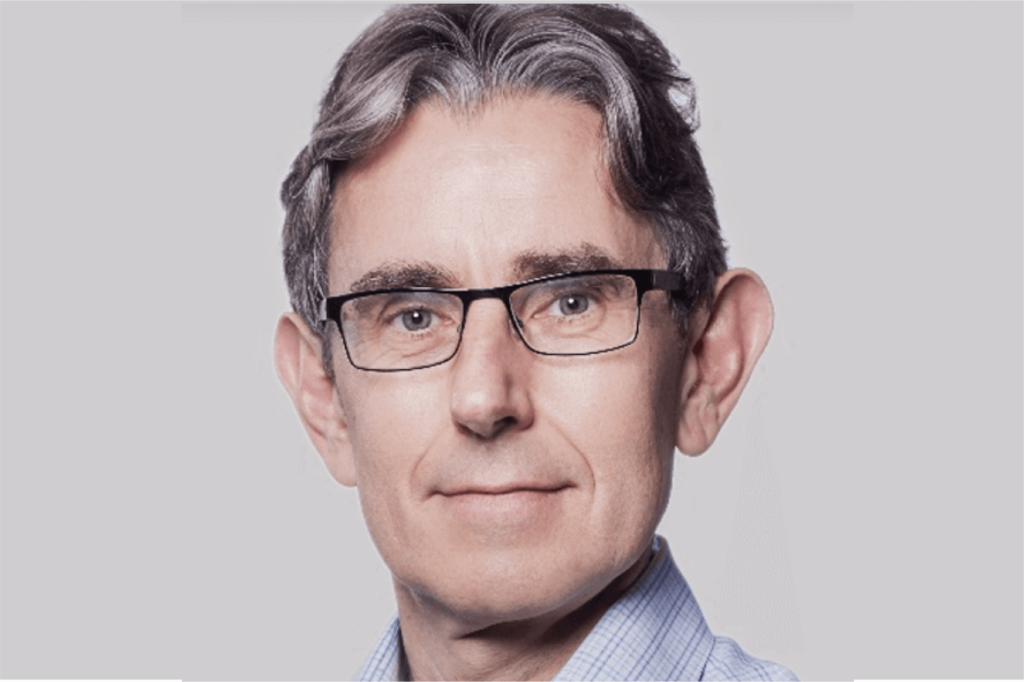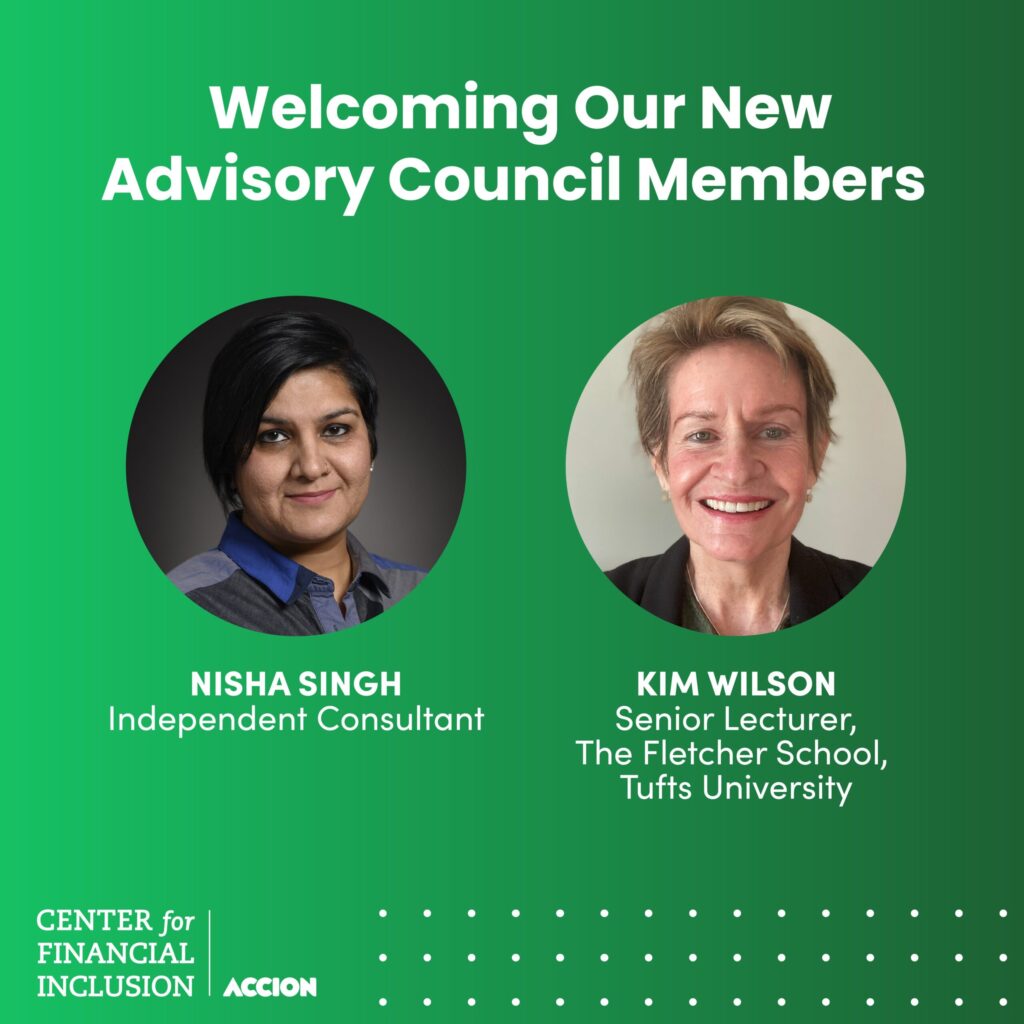
Series
CFI Advisory Council Member David Ferrand has had a prolific career. Educated as an engineer and trained as a commercial banker, David shifted his focus to financial inclusion in 1993. After working in the space for 12 years, he became the director of Financial Sector Deepening (FSD) Kenya, a multi-donor program established to support the development of inclusive financial markets. Now an independent consultant, David’s primary interest is in enhancing the impact of inclusive finance on the real economy and developmental outcomes. David joined CFI’s Advisory Council in July 2020.
As he reflects on how financial inclusion has evolved, David believes that we are at a turning point with potential for far greater developmental impact than has been seen to date. He also shares what he’s learned from nearly three decades in the Kenyan finance ecosystem, and what he believes are the crucial issues our community should prioritize.
How did you get involved in financial inclusion and what are you working on now?
DF: While I was working in banking in the UK, I received an opportunity to be posted to Kenya. I spent just over a year in corporate banking and it was there that I became interested in international development and financial inclusion. I decided to move out of the banking industry and return to the UK, where I got involved in microcredit enterprise development through the UK’s Department for International Development (DFID).
After working with DFID, I joined FSD Kenya where I worked until 2019. I then spent the next two years working with the FSD Network on strengthening how FSDs across Africa could work more effectively together. Most recently my focus has been on how we practically link the new possibilities for finance offered by digital technology with the pressing need to find new development pathways that work for Africa.
I’m interested in sustainability and the role of inclusive finance in accelerating or facilitating a more sustainable economic basis for developing economies. The green economic agenda is obviously critical now. And though I claim no expertise, I’m also very interested in gender – the question of gender and inclusive finance has become much more significant lately, and rightly so.
How has financial inclusion changed since you first became interested in the subject?
DF: It has changed massively. There’s been sustained interest in financial inclusion for three decades which, in international development, is perhaps unusual. The space started with credit, broadened into savings, and then insurance was “discovered”. The idea of microcredit was replaced with microfinance to become, broadly, financial inclusion. And now today, I tend to talk about “inclusive finance” because, if our objective is to achieve positive developmental change, one aspect of finance – the direct delivery of financial services to underserved populations – cannot be separated from the rest of the financial system.
When I was first involved, things were positioned around microcredit and micro-enterprise, and the approach was very supply-side driven. We all felt there was a recipe: if we could build the financial institutions to deliver finance, then we’d have a massive development impact.
But we realized there was a need to instead be outcome-oriented. Our aim is to deliver a financial system that is more inclusive and delivers on economic and social empowerment objectives. There has been a necessary shift toward the demand side to understand how finance plays a role in the real economy.
Another major change is commercialization. Three decades ago, the field was dominated by nonprofits. Then there was an explicit attempt to move towards commercialization to scale. In recent years it feels like we’ve been far more successful here than we dared hope. However, our challenge is to bring the work back to the development objectives that underpinned the original policy interest in the space without losing the power of markets to create far-reaching change.
In one word, what is the current state of financial inclusion today?
DF: Exciting. The possibility of really impacting low-income people is better now than ever. Digital technology has the potential to enable a radical reduction in transaction costs and we can imagine the creation of much more sophisticated holistic financing solutions. There are many more possibilities. We do, however, need to be on our guard against the risks these changes bring. Finance is a powerful tool that can wreak havoc as well as enable constructive change, and we must effectively protect vulnerable consumers of financial services in the new digital world. Even as technology brings new risks, it also provides new ways to improve consumer protection.
Finance is a powerful tool that can wreak havoc as well as enable constructive change, and we must effectively protect vulnerable consumers of financial services in the new digital world.
From your early experience in the banking industry, do you think banks have become more inclusive?
DF: I think they have. Thirty years ago, banks did not see 90 percent of the population in Africa as a viable market; they were focused on the top 10 percent. The inherent conservatism of the banking industry has often prevented the industry from taking advantage of the potential that technology offers.
However, this has changed dramatically in the last few decades, and the extent to which mainstream commercial banks across Africa have adopted channels that effectively enable outreach to underserved communities is tremendous progress. I think the inclusive finance community can take some credit for demonstrating the market potential. More recently, fintech has started to provide a compelling threat to the status quo and banks realize that they need to adapt if they are to remain relevant in a digitally-transformed world.
What lessons can be learned from the Kenyan inclusive finance ecosystem?
DF: A lot. I don’t think there is necessarily a “Kenya model” but it is useful to reflect on elements of what happened in Kenya. For example, there was a dominant mobile phone provider in Kenya that helped enable mobile money to become ubiquitous. Critical mass must be reached for mobile money to take off and to encourage further rounds of innovation. While that was achieved in Kenya, it has also come at the cost of a highly concentrated market which also creates challenges.
Besides the digital financial revolution in Kenya, we also see some of the darker sides of digital finance and how there can be unanticipated outcomes. For example, the rise of overindebtedness has been exacerbated by the ready availability of digital credit. While it is important not to overstate the point, there are nevertheless significant and growing cases of real harm. It is important to harness the powerful tools that have been created to ensure they are applied in a constructive way and risks are controlled.
What are the most crucial issues in inclusive finance that we should prioritize over the next five years?
DF: I think the number one challenge is how to carry over innovations from finance into the real economy; how new forms of partnerships can enable funds to flow effectively to solve real-world issues. As we get into the new frontiers of finance and development, it’s going to be difficult to find effective ways to take the capabilities of the private sector-driven finance industry and efficiently deliver, innovate, and address the needs of inclusive development. There has been increasing attention on blending finance – combining private, philanthropic, and public resources – but the experiences demonstrate how difficult it is to get right. It will continue to be challenging because it takes us into new organizational territory and causes us to reexamine our assumptions.
The tools we have been developing can and should play a role in increasing resilience, but they will be at best a modest supporting part if not allied with others.
Additionally, adaptation to climate change is critical and finance will play a central role in achieving a sustainable future. This requires thinking beyond yesterday’s conception of financial inclusion and instead thinking at a systems level. How is finance needed at various levels –global and national, sectors and communities, firms, and individuals – to increase resilience? The tools we have been developing can and should play a role, but they will be at best a modest supporting part if not allied with others.
Finally, we should prioritize achieving more effective forms of market conduct. This will require getting away from today’s largely rules-based regulation, which is frequently costly and practically ineffective. Politically challenging as it may be, an outcomes-driven approach is essential to successfully navigate the complexities of creating a genuinely inclusive financial system. This matters to directly protect consumers and ensure that markets are open and competitive.
What unique expertise and experience do you bring to the Advisory Council?
DF: As CFI seeks to influence systems change at a global level, I bring many years of experience wrestling with the practical challenges and opportunities of supporting change in what proved to be quite a dynamic system. There is a lot to be drawn from the Kenyan market – both good and bad – and there are many competing narratives of Kenya’s financial system development over the last 30 years. I hope I can bring at least one of those perspectives to bear as a member of CFI’s Advisory Council.
What advice would you give to young people in the banking industry today regarding financial inclusion?
DF: It is an exciting, but turbulent, place. The industry needs to change and I hope young people who have a long-term vision of what banking should become are attracted to the space. With respect to inclusive finance, banks are at the heart of where it needs to change. For too long, the primary attraction of a career in finance has been the considerable financial gain. This has fueled an approach to finance which has destroyed, rather than created, value. Financial inclusion clearly has not been immune to this. We need young people who are visionary and value-driven and who understand that finance has a key role to play in creating a better future.
Any final thoughts for our readers?
We must go beyond the idea of financial inclusion as a narrow concept and instead look at how we can re-engineer our financial systems to be more inclusive.
DF: It’s a time to be brave and bold. We face huge challenges, but these are surmountable. CFI is in a great position to play a catalytic role in influencing the emergence of the new paradigm. We must go beyond the idea of financial inclusion as a narrow concept and instead look at how we can re-engineer our financial systems to be more inclusive.










